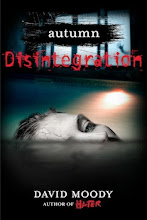A common piece of advice among writerly folk goes something like this:
"Write with honesty and clarity so that the reader trusts that she is in capable hands."
While I get what that's supposed to mean (in other words, make sure your writing is tight and don't yank the rug out from under your reader) , I'd take the advice a step further:
"Be the best liar you can be."
When you stop to think about it, the stories we read are nothing more than big intricate webs of lies. The more expertly woven a plot is, the more we are willing to buy into it (literally). The crazier the lie, the better the writing has to be to achieve suspension of disbelief.
There are no wizards (sadly), no Jedi (say it ain't so!) and no sparkly vampires (thank God). These are billion dollar lies. And we love them.
Think about your circle of friends. You probably have one or two that try to tell a story and it just falls flat. And you probably have at least one who lives an incredible life and always has a crazy story from the night before because the weirdest stuff happens to her. While, yes, some people have more exciting lives than others, it's all in how you tell the story.
Say your two friends tell the same story at a party. One of them sticks to the facts while the other embellishes at just the right parts. Which one of them will gather the bigger crowd around her? Which one will make new connections from telling that story, who in turn drag her to meet another circle of friends to retell that same story? How often have you been listening to someone's tall tale only to stop and tell them, point blank, that there's no way what they're saying ever happened? And then what? You encourage them to go on because you have to know how the story ends!
Stand-up comics, singers, politicians, marketing execs and writers. We're all liars. The best among us can lie right to your face and keep you coming back for more. So what's the secret?
I've always told lies based on the "Three C's" ( I honestly just made these up off the top of my head): Creativity, Consistency and Confidence
Creativity - Obviously as a writer this is a biggie. You take mundane events and jazz them up until they're actually interesting to read about. Say you had a best friend in third grade: that's reality. Then maybe, she happens to be an orphan and a bit of a social misfit. Turns out, your best friend actually possesses telepathy that she uses to pass her tests and charm her teachers. Oh and she gets that ability from her parents, one of whom is an alien and the other is a vampire (why not?) That's escalation from reality. That's creativity (it can be argued.)
Consistency - The easiest way to spot a lie is when the liar flubs the facts. If you got beat up by a guy who was 6' tall and 200lbs one minute, don't change him to 6'8'', 300lbs the next (unless he has a very severe pituitary problem.) While a little bit of embellishment will get their attention, if it's too inconsistent you'll lose them pretty quickly.
Confidence - Every bit as big as the first two, maybe the most important. Stick by your facts and categorically deny that it happened differently. Usage of the phrases "I swear!," "It happened just like that!" and "I know right?" tend to be thrown in for dramatic effect. In written work, having your in-scene characters react to a particularly crazy situation in a realistic way will show that you're confident in handling your own lie. I happen to enjoy it when said characters remark on how ridiculous a certain event is, all the while going through with the business at hand.
So practice the "Three C's." Lie to your friends, family and loved ones. See what lies work, see where embellishment helps and where it goes too far and see how they react in each situation.
In summary, if you want to be a better writer, lie your ass off!
~VK
Subscribe to:
Post Comments (Atom)









No comments:
Post a Comment